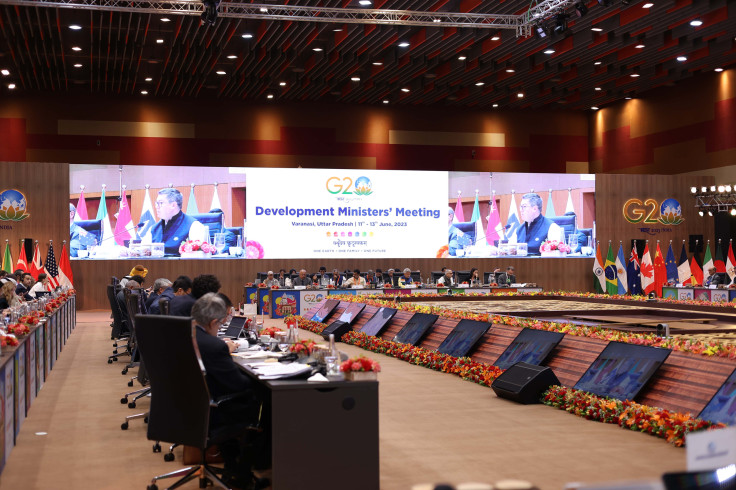Britain and India boost development partnership with new climate and tech investment
Development Minister Andrew Mitchell has recently visited India to attend the G20 Development Ministers' Meeting in Varanasi, which discussed new investments that support a women-led climate-tech fund.

Earlier this year, Foreign Office Minister Minister Andrew Mitchell, set out Britain's approach to international development, articulating the importance of reinvigorating Britain's leadership within the international community.
A key part of government's approach is an emphasis on building international partnerships which consolidate international development through mutually beneficial relationships.
One key international partnership for Britain is with India. Back in 2021, the government published the 2030 Roadmap for India-UK future relations, which sets out a the objective of increasing "investment and technological collaboration" in order to boast joint prosperity between Britain and India.
In accordance with this objectives, the Foreign, Commonwealth & Development Office have recently announced climate and tech investments and partnerships which boast cooperation between Britain and India on international development. According to Christina Scott, Acting British High Commissioner to India, the "investments highlight the UK's commitment to delivering the 2030 Roadmap".
Similarly, Mitchell has explained that the investments "deepen" cooperation between Britain and India, as well as providing mutually benefits between the two nations. Stating his pride in British support for "visionary and innovative endeavours" required to extend global progress in development, Mitchell explained that the new investments "benefit the British taxpayer while delivering world-changing solutions."
The announcement of the new climate and tech investments came as Mitchell recently visited India to attend the G20 Development Ministers' Meeting in Varanasi. The G20 (Group of Twenty) brings together the biggest economies in the world, including the United States, China, and Brazil to work on international economic cooperation.
Earlier this year the more exclusive G7 Summit took place in Hiroshima, Japan. Bound by a common commitment to a rules-based international order centered around liberal democratic values, the G7 nations are united in their condemnation of Russia's invasion of Ukraine. However, with a larger membership including Russia and China, things are more politically complicated in the G20. For example, the G20 failed to agree on a joint position on the Ukraine war earlier this year.
Held from June 11th to 13th, the meeting of G20 development ministers took place as the international development challenges presented to the international community have been amplified by a long list of factors. They include the consequences of the ongoing war in Ukraine. As well as putting pressure on energy prices, inflation, and the cost of living, the war has also created pressures on food security.
The current G20 Presidency is held by India until the end of November this year, with the main G20 Leader's Summit in taking place in New Delhi this September. Mitchell has praised India "for putting development and the needs of the poorest and most vulnerable at the heart of its G20 Presidency."
Mitchell also highlighted Britain's commitment to cooperation with G20 members on responding to the climate crisis and reducing global poverty, with the British government also articulating to the G20 the need "to redouble global efforts" in response to the climate crisis and the "shocks facing the most vulnerable countries".
So what exactly are the new climate and tech investments?
Firstly, investment worth £10 million has been committed to the Avaana Fund, "a women-led climate-tech fund" that backs businesses to create climate change solutions. Crucially, the Fund backs businesses to include more women in a variety of sectors, including clean energy, energy storage and agriculture.
Secondly, Nutrifresh, "an Agri-Tech start-up enterprise" motivated by the objective of sustainable agriculture and the environmentally friendly growth of vegetables, will receive £12 million from the Neev II fund. Launched in May 2021, the Neev II fund is backed by the British government, and invests in SMEs which operate in ways that help India meet 2030 targets on reducing carbon emissions. For example, through innovating in areas such as clean energy, electric vehicles, and the efficient use of raw materials.
On the 11th of June, Mitchell made a visit to the Chakr Innovation research lab, a British supported lab based in Delhi which works on "cutting-edge tech to tackle climate challenges". For example, the lab is currently working on fully recyclable batteries for e-vehicles that do not require charging infrastructure. These provide a superior alternative to lithium tech.
© Copyright IBTimes 2025. All rights reserved.





















